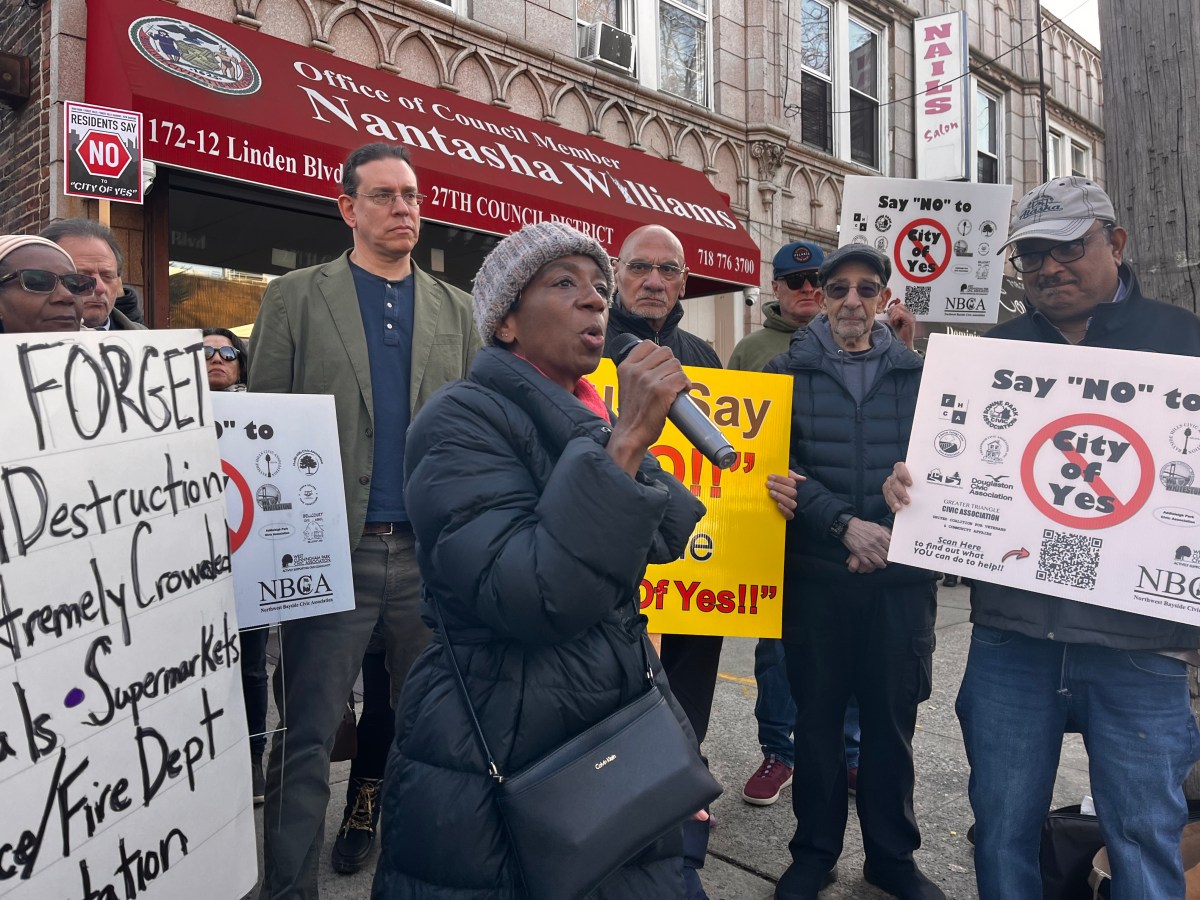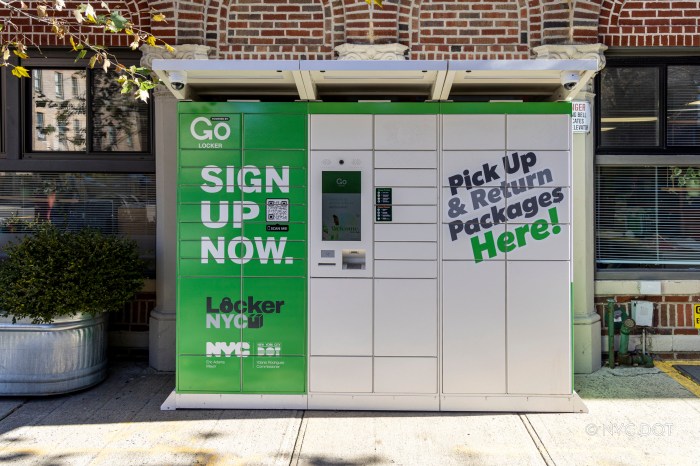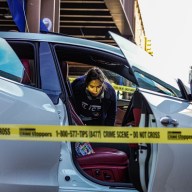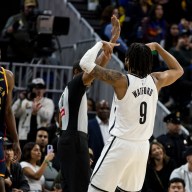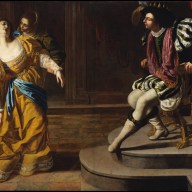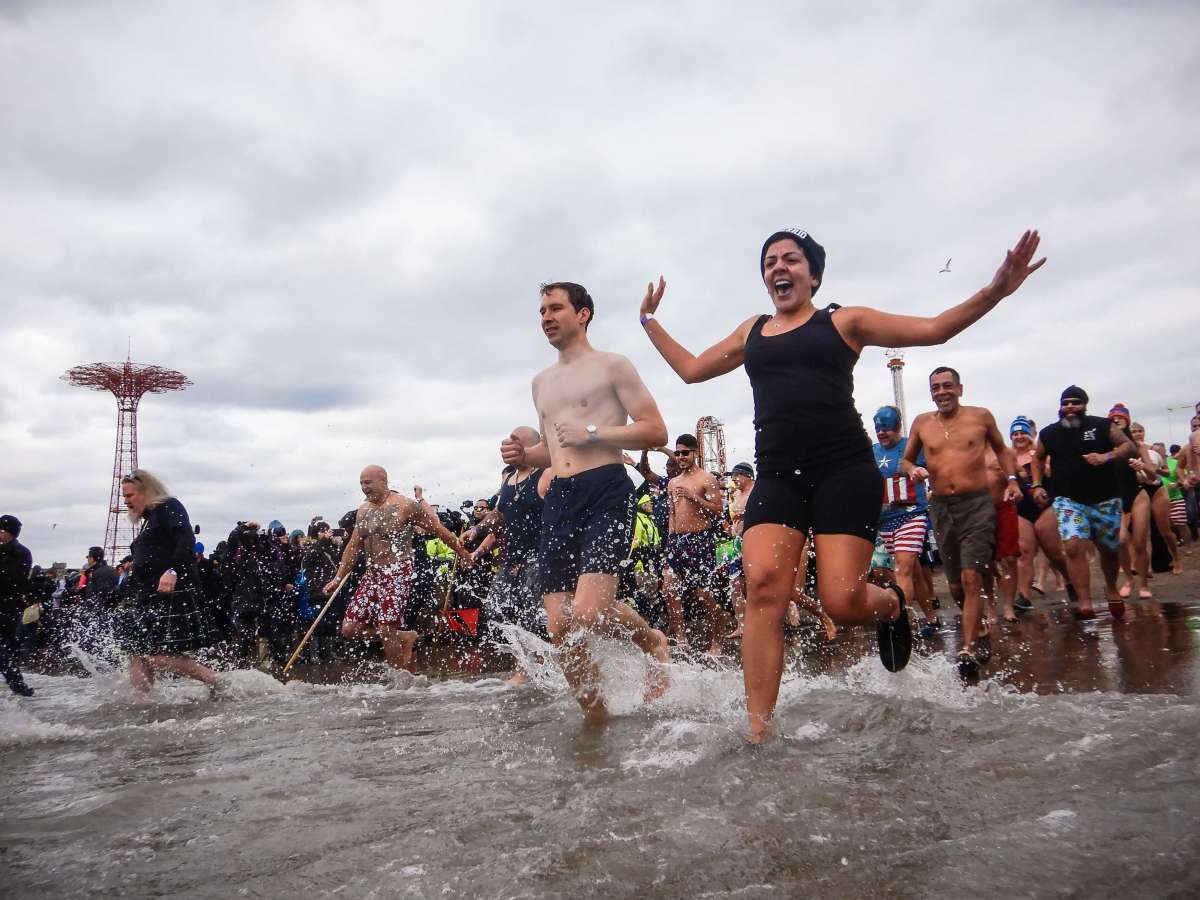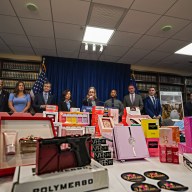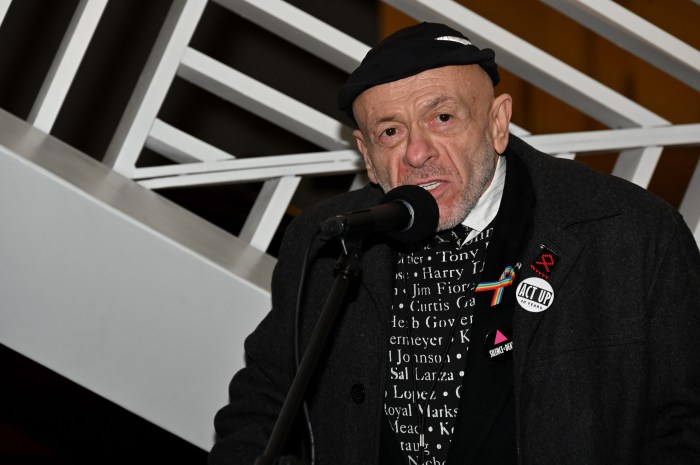
A fleet of 60 new bullet-resistant NYPD cruisers with protective glass windows and door panels will hit the streets across the five boroughs this week in a pilot program aimed at giving police an extra layer of protection when inside their patrol cars.
“This is the latest effort in the department to try and do everything possible to protect our officers,” NYPD Commissioner William Bratton said Tuesday at police headquarters, where the new Ford Explorers were unveiled.
“We have an obligation to protect our officers,” said Bratton, who remembered the shooting deaths of officers Wenjian Liu and Rafael Ramos, who were slain by a lone gunman while sitting in their marked cruiser in Brooklyn’s Bedford-Stuyvesant neighborhood in December 2014. Several months later, in May 2015, Officer Brian Moore was shot in the face while sitting in his unmarked car in Queens Village.
“We can’t do enough to help protect our police,” said Chief of Detectives Robert Boyce, adding that the use of the panels “says we truly care about our cops.”
The 90-day pilot program will have officers “field test” the vehicle “to make sure it meets our officers’ needs,” Bratton said.
If successful, the commissioner said he anticipates the protective bullet glass panels will be installed in the department’s fleet of cruisers and unmarked cars. He said car manufacturers already install the bullet-resistant glass panels as standard equipment for police cars.
The front-seat window panels are about 2-inches thick and shield only the portion of the window that covers the officers’ heads. The panels do not roll up and down, though the windows of the car do. The ballistic-glass door panel covers the midsection of the front doors. The car’s remaining glass — the windshield, rear windows and back window — remain standard equipment.
Bratton said “the doors give an extra margin of protection” for officers who can use the door as a shield when they step out of their vehicles.
Deputy Commissioner Robert Martinez of support services said the glass panels can resist bullets fired from a .40-caliber Magnum and a shotgun from 10 feet away. He said the window panels and the doors can be removed and used in other cruisers.
The glass panels cost $4,200 for each vehicle. At the end of the pilot program officers will be surveyed to ask if the window panels posed an obstruction to “communicating” with the public, Martinez said.
The pilot program may be the largest launched in the country so far, Bratton said. “This is a new direction of American policing and we always try to stay ahead of the curve.”



